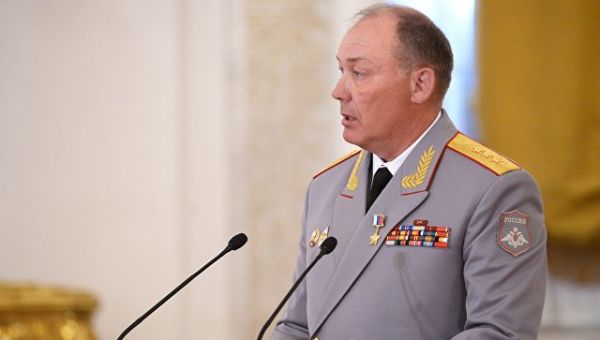Moscow. February 23. INTERFAX - Tensions around Ukraine are being escalated by "Western hawks", while countering threats from NATO is the most important task of the Russian military, said Army General Alexander Dvornikov, commander of the Southern Military District (SE).
"Today, active opposition to NATO threats is the most important task of defenders of the Fatherland," Dvornikov said in his congratulations on Defender of the Fatherland Day, which is celebrated in Russia on Wednesday.
"News agency feeds have been continuously replenished in recent days with reports about the transfer of new military units and equipment by Western countries to the borders of Russia. NATO soldiers and weapons are arriving in Eastern Europe and Ukraine. All this is being done under the pretext of tensions fueled by Western "hawks" around our neighboring Ukraine," Dvornikov was quoted as saying by the press service of the Southern Military District.
"Nevertheless, against the background of the increasingly loud clang of weapons in Eastern Europe, the dialogue between Russia and the West on security guarantees continues, in which our country now focuses on the principle of indivisibility of security," the commander said.
"Despite the hardships that have befallen our country in the past, the current external threats, we look to the future with optimism and are proud of the results of the work already done," Dvornikov said.
The commander made this statement against the background of the crisis in relations between Russia and NATO, as well as the aggravation of the situation around Ukraine.
Russia has recognized the independence of the Donetsk and Lugansk People's Republics. In response, Western countries announced the introduction of new sanctions against Russia.
On February 22, the Federation Council agreed to use the Armed Forces of the Russian Federation outside the territory of the Russian Federation in connection with the situation around Donbass.
"The situation in the Donetsk and Luhansk People's Republics, unfortunately, is very complicated, it tends to worsen. We must protect the residents of these young states, many of them, hundreds of thousands, are citizens of the Russian Federation," Deputy Defense Minister Nikolai Pankov said at the Federation Council on February 22.
"The negotiations have reached an impasse. The Ukrainian leadership has embarked on a path of violence and bloodshed. On the borders of the DPR and LPR, Ukraine has created a 60,000-strong military group, which includes heavy armored vehicles, missile systems, and multiple launch rocket systems. The shelling is increasing day by day, they are conducted in all directions, reaching up to 2 thousand shells a day. Of these, 316 are from heavy weapons directly prohibited by the Minsk agreements," Pankov said on February 22.
On February 21, Russian President Vladimir Putin signed a decree recognizing the independence of the DPR and the LPR. The parties signed an agreement on friendship and cooperation and mutual assistance. The State Duma and the Federation Council ratified the treaties on February 22.
Earlier, the United States, other NATO countries and Ukraine announced the concentration of Russian troops at the Ukrainian border and the threat of a Russian invasion.

